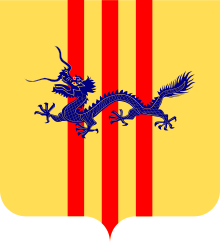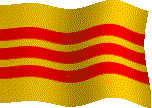
5 April 1923 ~ 29 September 2001

~ 720th Military Police Battalion Reunion Association History Project ~ |
Nguyen Van Thieu |
 |
President of South Vietnam 5 April 1923 ~ 29 September 2001 |
 |
The son of a small landowner, Thieu was born in Vietnam on 5 April, 1923. He was educated at the National Military Academy in Hue. |
|
Originally a Buddhist, he converted to Roman Catholicism when he married a doctor's daughter. After the Second World War he joined the armed forces and by 1963 he was chief of staff of the Armed Forces of South Vietnam.At the beginning of November, 1963, President Ngo Dinh Diem was overthrown by a military coup who killed him. Nguyen Van Thieu was appointed chairman of a 10-member military directorate. He also became Minister of Defense and in 1967 was elected as President of South Vietnam. Peace talks between representatives from United States, South Vietnam, North Vietnam and the National Liberation Front (Viet Cong Political Arm) began in January, 1969. |
In October, 1972, the negotiators came close to agreeing to a formula to end the war. The plan was that US troops would withdraw from Vietnam in exchange for a cease-fire and the return of 566 American prisoners held in Hanoi. It was also agreed that the governments in North and South Vietnam would remain in power until new elections could be arranged to unite the whole country. The main problem with this formula was that whereas the US troops would leave the country, the North Vietnamese troops could remain in their positions in the south. In an effort to put pressure on North Vietnam to withdraw its troops. President Richard Nixon ordered a new series of air-raids on Hanoi and Haiphong. It was the most intense bombing attack in world history. The North Vietnamese refused to change the terms of the agreement and so in January, 1973, Nixon agreed to sign the peace plan that had been proposed in October. The last US combat troops left in March, 1973. It was an uneasy peace and by 1974, serious fighting had broken out between the North Vietnamese Army and South Vietnamese troops. Although the United States continued to supply the South Vietnamese government with military equipment, their army had great difficulty using it effectively. Nguyen Van Thieu appealed to President Nixon for more financial aid. Nixon was sympathetic but the United States Congress was not and the move was blocked. At its peak US aid to South Vietnam had reached 30 billion dollars a year. By 1974 it had fallen to 1 billion. Starved of funds, Thieu had difficulty paying the wages of his large army and desertion became a major problem. The spring of 1975 saw a series of North Vietnamese Army victories with areas such as Da Nang and Hue being lost in March. Nguyen Van Thieu announced in desperation that he had a signed letter from President Nixon promising military help if it appeared that the North Vietnamese were winning in South Vietnam. However, Nixon was no longer in a position to fulfil his promise as he had been forced to resign over the Watergate incident. The new president, Gerald Ford, a strong supporter of US involvement in Vietnam, tried to raise support for the South Vietnamese government but the United States Senate was adamant that as far as it was concerned, the war was over. On April 25, 1975 President Thieu, accusing the United States of betrayal, resigned and left the country. He was quickly followed by other South Vietnamese leaders and the remaining American advisers. Nguyen Van Thieu lived in exile in Taiwan, England and the United States, and died in Boston on 29th September, 2001. |
Use Your Browser Button To Return |